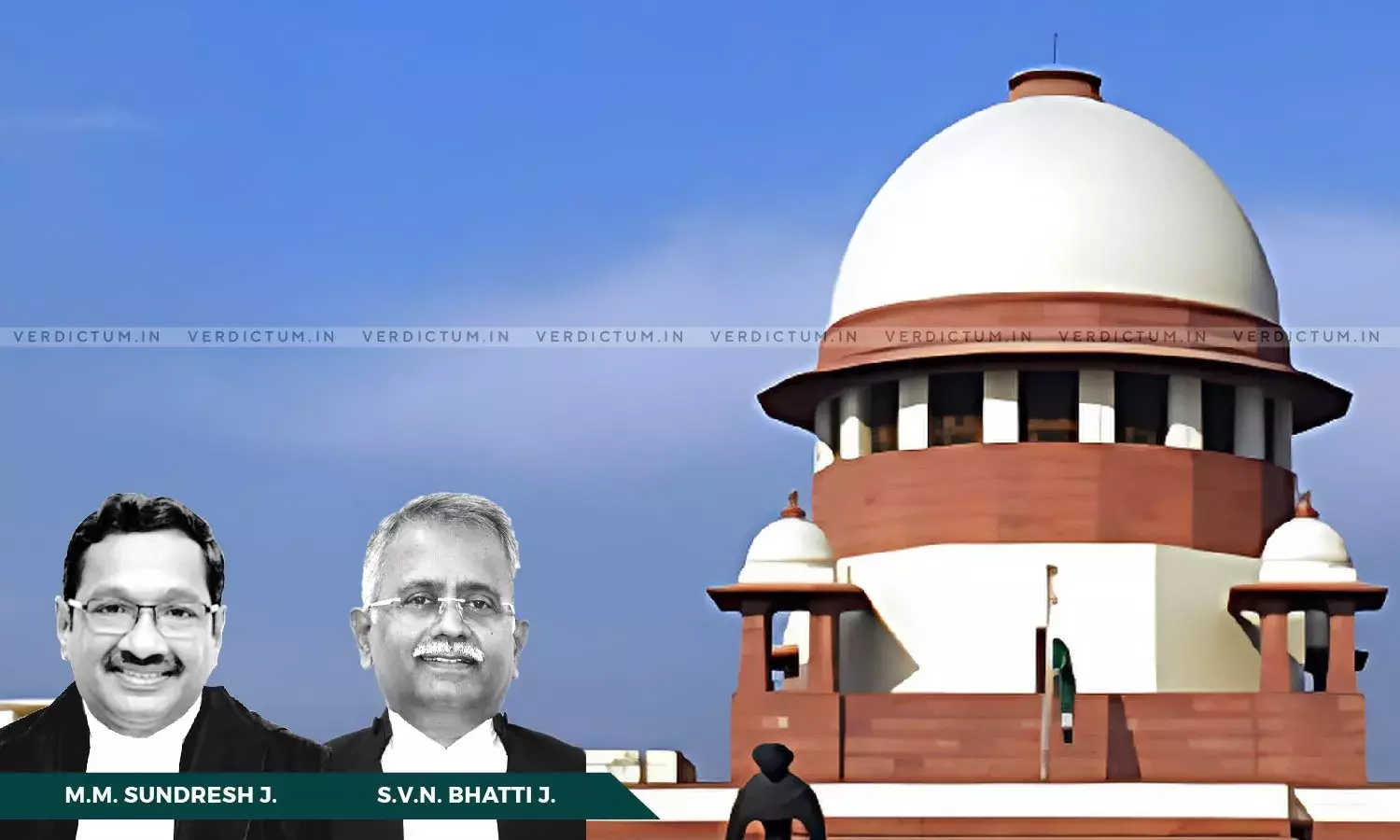Protection Of Forests Is In The Interest Of Mankind; There's Crying Need For A Change To Ecocentric Approach: SC
The Supreme Court observed that the protection of forests is in the interest of mankind.
The Court emphasized that the depletion of forests, significantly affects the underprivileged, and results in a violation of their right to equality under Article 14 of the Indian Constitution.
The Court added that there is a crying need for a change from anthropocentric approach to ecocentric approach.
In that context, the Bench of Justice MM Sundresh and Justice SVN Bhatti observed that, "Forests also play a pivotal role in controlling pollution, which significantly affects the underprivileged, violating their right to equality under Article 14 of the Constitution of India, 1950. It is the vulnerable sections of the society who would be most affected by the depletion of forests, considering the fact that the more affluent sections of society have better access to resources as compared to them. Therefore, the protection of forests is in the interest of mankind, even assuming that the other factors can be ignored."
The court also observed: "There is a crying need for a change in our approach. Man being an enlightened species, is expected to act as a trustee of the Earth. It is his duty to ensure the preservation of the ecosystem and to continuously endeavour towards the protection of air, water and land. It is not his right to destroy the habitat of other species but his duty to protect them from further peril. A right to enjoy cannot be restricted to any specific group, and so also to human beings. The time has come for mankind to live sustainably and respect the rights of rivers, lakes, beaches, estuaries, ridges, trees, mountains, seas and air. It is imperative to do so as there is always a constant threat to forests due to the everincreasing population. Man is bound by nature’s law. Therefore, the need of the hour is to transform from an anthropocentric approach to ecocentric approach which will encompass a wider perspective in the interest of the environment."
Additional SG Aishwarya Bhati appeared for the appellants, while Senior Counsel Neeraj Kishan Kaul and Senior Counsel L Narsimha Reddy appeared for the respondents.
Between 1950 and 1959, a survey and settlement revision occurred in the village of Kompally, concluding on November 17, 1960. Respondent No. 1 filed an application under Section 87 of the A.P. Land Revenue Act, 1317 F., seeking rectification of a survey error, claiming ownership of the suit land, which spans 106.34 acres in Village Kompally, District Warangal. However, this application was rejected on January 10, 1975, only to be later allowed by the Joint Collector on July 7, 1981.
In 1971, a government notification under Section 15 of the A.P. Forest Act declared the land as reserved forest, based on the premise that it was forest land. Despite this declaration, the application filed by the Plaintiff was rejected, and the matter was remitted to the Joint Collector.
Following subsequent legal proceedings, including a suit filed by the Plaintiff in 1985 seeking a declaration of title and permanent injunction, the trial court granted title to the Plaintiff but denied the injunction. On appeal, the High Court reversed the trial court's decision, concluding that the suit property is forest land and dismissing the suit entirely.
A review was filed after the High Court's judgment, during which Defendant No. 1 constituted a committee to examine the suit property's status. The committee recommended excluding the land in favor of the Plaintiff, despite the District Collector's stand that the land was forest land. However, this decision was overturned in a review by another Learned Judge, who reversed the findings of the appeal, leading to the current appeal before the court.
The appellants argued that the High Court exceeded its jurisdiction in the review by re-hearing the case and acting as an appellate court, while the respondents contended that the proceedings before the Forest Settlement Officer had concluded, and the trial court had already recognized the plaintiff's title to the land.
The Court observed that, "We are at a loss to understand as to how the High Court could interfere by placing reliance upon evidence produced after the decree, at the instance of a party which succeeded along with the contesting defendant, particularly in the light of the finding that the land is forest land which has become part of reserved forest."
In light of the same, the appeal was allowed, and the Court imposed costs of Rs. 5,00,000 each on the appellants and respondents.
Appearances:
Appellants: Additional SG Aishwarya Bhati
Respondents: Senior Counsel Neeraj Kishan Kaul, L Narsimha Reddy
Cause Title: The State of Telangana & Ors. vs Mohd. Abdul Qasim (Died) per LRS.
Click here to read/download the Judgment




